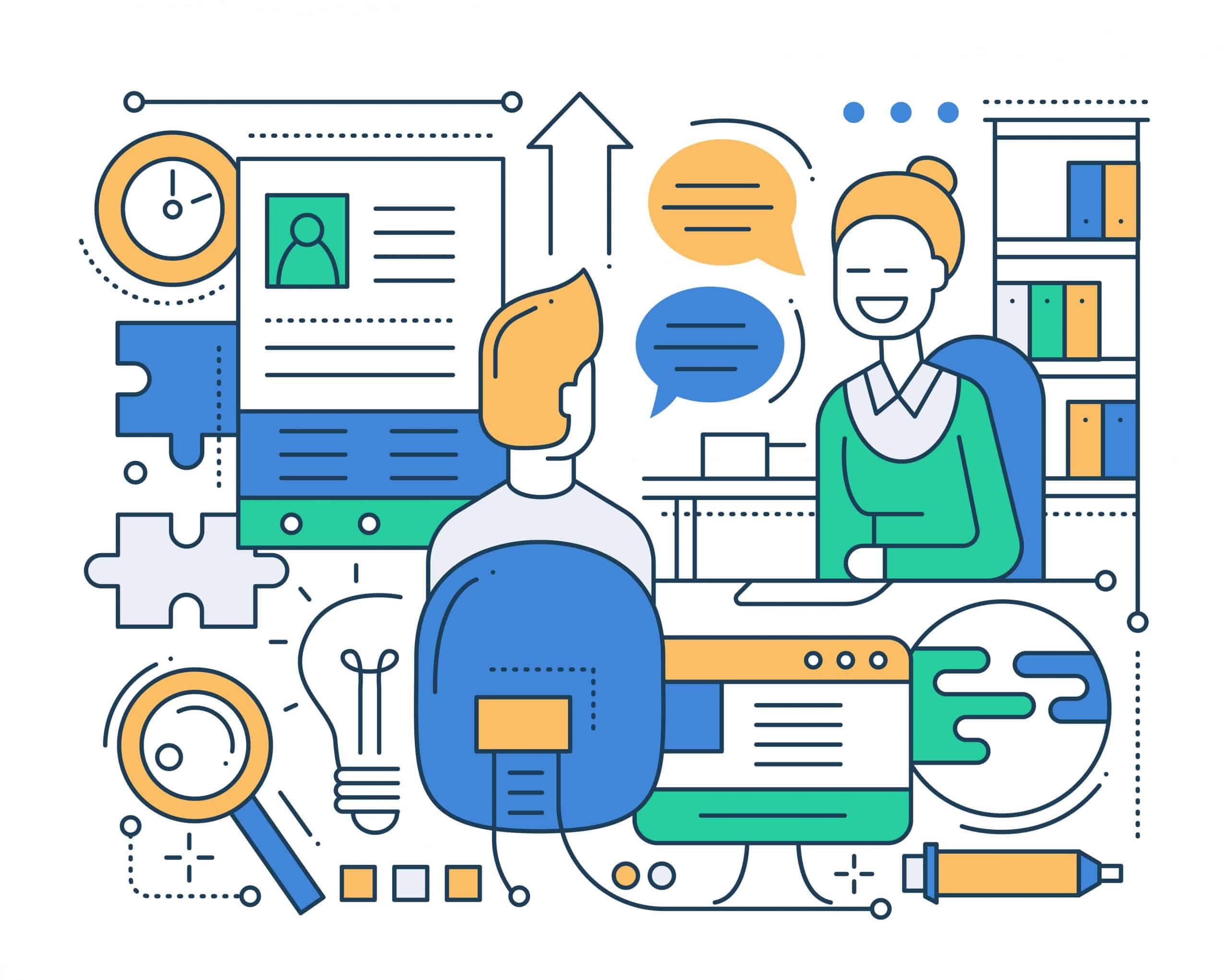After you complete your UX training and lots of practical sessions as well as real-world development, it’s time for you to hunt for that one perfect job you have been dreamt about.
UX interviews are not easy to crack as they would just toss you off for one wrong move. It’s not that hard to get a job as well but in case you need a decent job, you need to prepare your UX skills verbally. How? We guide you here…
Before we directly jump into the list of UX design interview questions, let’s discuss the process of interview. A job interview is your first corporate formal date. The first impression means a lot here and you need to glorify yourself to impress the employer. They will be looking for more than your UX skills as they haven’t gone through your resume yet. The questions could come from anywhere and you need to prepare yourself for the real battle.
Let’s have a quick look at some tricky UX interview questions…
Tell us about yourself
Don’t take this question for granted. They are not asking you about your hometown, schooling or degree course you went through. You need to explain your resume in this question. Explain to them your experience, any UX course you went through, what practical exposure you achieved through this course if you are a fresher. If you have worked in an organization that deals with UX requirements, explain them your role in detail in every project you worked on.
UX jobs are all about experiences and how you have sharpened your skills. Give them not a single but multiple chances that why they should hire you.
Also, give them an idea of why you are leaving your current job and the real reason behind it. Honest answers will win their minds.
Why are you opting for a career in UX design? / Why you chose UX designing as your career/
The real reason behind an interviewer will hire you for the job is this field excites you. Yes, a career in UX designing is exciting and assuring. The world needs the internet and we are going to design the internet with our own style.
Be honest (and enthusiastic) here. Don’t provide answers on the lines of, “I heard you don’t ask for a college degree to be a UX designer,” or, “It offers decent pay,” (both of that are true, but probably not what the interviewer needs to hear). Instead, consider focusing on the attributes that make you a decent UX designer. Examples might include soft skills such as:
- Problem-solving
- Empathetic
- Curious
You could also portrait your proficiency in time management, or switch over to some of the hard skills needed by UX designers. as an example, you may speak about:
Visual elements: Have you ever always had a knack for visual design theory? Is it like fingernails across a sheet after you see improper use of layout, colour, typography, icons, visual hierarchy, etc.?
Storyboarding: Have you always been obsessed with storyboarding and excited to learn you may make a career of it?
Wireframing: Did you once take a class on wireframing and realize it was something that came naturally which you’d love to do day in and day out?
Why do you want to work with us?
This question is found in almost every interview not just with the UX companies. If its a tech startup, your pace and innovative thoughts can impress them, if it’s a huge corporation, you need to showcase your basic UX skills in pace.
Before you enter the company for an interview, check out their values and work culture from online sources and if anyone is familiar for you from the inside, ask them a few questions like how they handle projects, which technology they work with and how often they schedule a training program for newbies if you are a fresher.
Where do you see yourself in the next ## years?
They can ask any number. They might ask you for 2 years or 5 years. Portrait yourself for the long run. Research about the culture they have at the organization and prepare yourself to adopt the culture and improve it with your presence. With this assurity, the interviewer will learn to trust you gradually offering you a position there.
Together with culture, prepare yourself to indulge in the process and development of UX elements in the organization. Give them confidence that you will learn new things.
Tell me something about your portfolio…
We believe this can be one of the UX interview questions you face. When an interviewer asks to check your portfolio, he doesn’t simply need you to hand it over. He needs you to run him through it so he will see not only your creative output but your method of thinking as well. Explain your interviewer why you designed the apps or sites and the way you did. Tell him who the target audience was, what problems you were wanting to resolve, and why you went about finding it the way you probably did.


